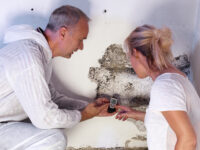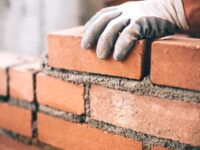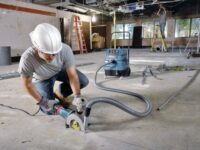As good people, we like to think the best of everyone we interact with, especially those tasked with caring for our loved ones. We may believe that no one would go into the healthcare profession only to harm those who they promised to protect, but unfortunately, the truth is that not everyone has the best intentions: it’s up to us to advocate for those we love and ensure that they are cared for with dignity, compassion, and respect.
What is nursing home abuse?
Nursing home abuse encompasses a wide variety of factors, from simple neglect to serious crimes against an elder. In some instances, the abuse does not cause physical harm but instead takes the form of siphoning from their bank accounts, cashing Social Security checks and pocketing the money, or stealing their belongings to either keep or sell for cash.
While stealing from a patient is wrong, it does not cause physical harm, which could seriously injure or even kill a fragile elder. The most common type of abuse is physical abuse, which can include hitting a non-compliant patient or restraining them when they are upset. Neglect, another common form of abuse, can be just as dangerous, as it can lead to major complications for the patient from rashes, infections, and open wounds. As we age, our immune systems become less effective, and so a small wound can quickly become a serious, system-wide infection that could kill an elderly patient. Nursing homes that do not adequately care for a patient’s hygiene or keep their environment clean can send their elderly residents to the hospital with life-threatening infections.
What are the signs of nursing home abuse?
While it can be difficult to ascertain if your loved one is being abused, there are several signs that can warn you of potential danger.
The first sign of nursing home abuse can be seen even before talking to your loved one: an unclean environment. As mentioned before, elderly individuals are highly vulnerable to infection, so poorly maintained quarters can easily lead to serious illness. A badly maintained facility may smell of urine due to incontinent patients and commodes that have not been cleaned properly, or it may have obvious stains or dirt in the living areas. Consider also whether there is adequate entertainment for the patients, and whether you see other residents engaged in activities: a lack of books, games, and sitting areas could suggest that patients are neglected and allowed little interaction with one another, which can be just as deleterious to their health.
As you interact with your loved one, note their mental state. Do they seem more depressed or anxious than usual? Do they mention staff that they “don’t like” or that they’re afraid of? Do they refuse to interact with certain carers or shy away from them? It’s normal not to get along with everyone in life, but expressing genuine fear or hatred for a certain person is a sign that you might need to investigate this issue more. This is especially true if they’ve always been an outgoing and cheerful person, as sudden fear might suggest that they aren’t being cared for properly.
Lastly, take a look at their physical state. Do they seem under the weather far more often than usual? Are there strange bruises that can’t be explained by simple accidents or clumsiness? A few bumps and scrapes aren’t uncommon, especially as we age, but if this becomes a consistent pattern, or they appear in places like the wrist or forearm, you may need to consider the possibility of nursing home abuse.
Remember that one or two signs aren’t always evidence of abuse: you should consider the whole situation, such as whether a facility looks unclean and your loved one is also expressing fear or dislike of certain staff members. However, it’s always best to err on the side of caution, especially as nursing home abuse can have serious effects on your relative’s safety and peace of mind.
How can you take action against nursing home abuse?
The most important way to prevent nursing home abuse is to be there with your loved one as often as possible and take careful note of the circumstances. Stay in regular contact with your relative and watch for any changes in their behavior or physical condition, especially if a new staff member has recently joined the facility.
If you suspect nursing home abuse, get in contact with the local health board, who can open an investigation and determine whether the nursing home is being run according to state standards. Many states also have elder abuse hotlines you can contact to discuss your concerns.
Should there be proof of any form of abuse, whether that is financial or physical, know that you have recourse to receive justice for your loved one. A qualified personal injury lawyer with experience in nursing home abuse, like Rosenfeld Injury Lawyers, can help you navigate the legal system and collect the appropriate evidence to win a legal settlement against the facility. You may also be asked to be part of a criminal investigation or class act lawsuit against the nursing home, so be prepared to provide your evidence to other legal professionals if needed.
Final thoughts
We all deserve to age with dignity and to be treated with respect at all stages of our life. Unfortunately, nursing home abuse is a prevalent issue, and we need to advocate for our loved ones so that they can be safe in a place meant to ensure their well-being in these vulnerable years. By keeping a close eye on your senior relative and knowing their rights, you can protect them from this insidious danger and gain justice should they be harmed.




















